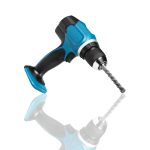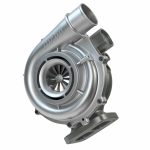When it comes to enhancing your vehicle’s performance or simply giving it a unique look, aftermarket parts seem to be a viable option. However, there are important considerations to bear in mind, such as the potential insurance implications. So, what exactly happens to your car insurance when you install aftermarket parts on your vehicle in the UK? This article aims to shed some light on this complex issue.
The basics of aftermarket parts
Before diving into the insurance aspect, let’s first understand what aftermarket parts are. These are car parts that are not sourced from the vehicle’s original manufacturer. Instead, they’re produced by third-party companies and are often used for vehicle repairs or enhancements.
Also read : How to assess the reliability of car brands available in the UK for 2023?
There are several reasons why you might opt for aftermarket parts. Perhaps you’re seeking to improve your car’s performance, or maybe you want to personalise it to reflect your style. Despite the potential benefits, it’s crucial to understand the potential implications – primarily concerning your car insurance.
Impact on car insurance premiums
One of the first questions that might come to your mind is, “How will installing aftermarket parts affect my car insurance premiums?” The answer can be a bit complicated, with several factors at play.
Also read : What are the best strategies for managing fleet vehicles efficiently in the UK?
In general, any modifications made to your vehicle may result in an increase in your car insurance premiums. This is because modifications can increase the value of your car, making it more attractive to thieves. Furthermore, certain modifications can make the car riskier to drive, leading insurers to perceive you as a higher-risk client.
However, the level of increase in your premiums can vary significantly based on the type of modification. For instance, performance-enhancing modifications such as turbochargers are likely to cause a significant increase in your premiums, while aesthetic enhancements like a new paint job might result in a smaller increase.
Disclosure of modifications to your insurer
The importance of disclosing any modifications to your insurer cannot be overstated. Failing to do so could render your insurance policy invalid, leaving you without any coverage in the event of an accident.
The reason behind the need for disclosure is simple – insurance companies calculate premiums based on risk. If your car has been modified in a way that increases its risk (either by becoming more attractive to thieves or harder to drive safely), your insurer needs to know about it.
Keep in mind that even seemingly harmless modifications, like adding a new stereo system, should be disclosed. Failure to do so can be seen as withholding information, which can have serious consequences.
Does the type of aftermarket part matter?
Yes, the type of aftermarket part you install can indeed have an impact on your insurance. Not all parts are created equal in the eyes of insurers.
Performance-enhancing parts like turbochargers, engine modifications, or altering the car’s suspension system can significantly increase your premiums. These modifications can make the car more powerful and potentially more dangerous, leading insurers to see you as a higher risk.
On the other hand, cosmetic changes like a new paint job, alloy wheels, or custom interiors usually have a lesser impact on your premiums. However, they can still make the car more attractive to thieves, which could result in a slight increase in your insurance costs.
Claims and aftermarket parts
Another important aspect to consider is how aftermarket parts can affect your claims. If you have installed a costly aftermarket part, and it gets damaged in an accident, your insurer may not cover the cost of replacing it with the same part.
Most standard insurance policies only cover the cost of replacing parts with standard, factory-made parts. This means that if your aftermarket part is more expensive than the standard part, you may be left to cover the difference in cost.
On the other hand, some insurers offer optional additional coverage for aftermarket parts. This can be a wise investment if you have a significant amount of money tied up in vehicle modifications.
In summary, while aftermarket parts can improve your car’s performance or aesthetics, they come with potential insurance implications. Before making any changes to your vehicle, it’s worth discussing your plans with your insurer to understand how they could impact your premiums and what steps you can take to ensure you’re adequately covered. Remember, transparency is key in maintaining a valid and effective insurance policy.
Aftermarket parts and policy cancellation
When it comes to the subject of policy cancellation, you might be wondering how your car modifications might affect your insurance policy. The reality is, failure to disclose any modifications made to your vehicle can lead to your insurance provider potentially cancelling your policy.
Though it might seem like a distant threat, this is a reality faced by several car owners who have made modifications to their cars. After spending a significant amount of money on your aftermarket parts, you certainly wouldn’t want to be left without insurance coverage.
Your insurance provider determines the risks they are prepared to cover based on the information they have when you take out your policy. If you fail to inform them about changes you make to your car, your insurer could argue they wouldn’t have insured you if they knew about the modifications.
Consequently, your insurer might decide to cancel your policy if they discover undisclosed modifications. Alternatively, they might choose to honour your policy but exclude any claims related to your undisclosed modifications. Therefore, it’s essential to maintain transparency and keep your insurer informed about any changes to avoid such scenarios.
Mitigating the impact of modifications on your car insurance
While it’s clear that car modifications can impact your insurance premium, there are ways to mitigate these effects.
Firstly, consider getting your modified car professionally appraised. This will give you a good idea of the car’s value with the modifications, which could be useful when negotiating your premiums with your insurance provider.
Secondly, take the time to shop around and compare quotes from multiple insurers. Not all insurance providers view modifications in the same light, and you could potentially find a better deal by switching providers.
Another strategy is to consider taking an advanced driving course. By doing so, you can show your insurance provider that you are a responsible driver, even with the added risk of modifications.
Lastly, ensure that your vehicle is fitted with an approved security device. This can help offset the increased theft risk associated with certain modifications, and could potentially lower your premiums.
Conclusion
In conclusion, installing aftermarket parts on your car in the UK can have significant insurance implications. It can increase your insurance premium, affect your claims, and even lead to policy cancellation if modifications are not disclosed to your insurer.
However, with the right strategies, including professional appraisal, comparing quotes, taking advanced driving courses, and installing security devices, you can help mitigate these effects.
The key lies in understanding the implications of your modifications and being transparent with your insurance provider. This will ensure that you maintain a valid insurance policy that provides adequate coverage for your modified car. Always remember, insurance is an essential aspect of owning a car, and maintaining a good relationship with your insurer is crucial for a smooth and stress-free driving experience.
















